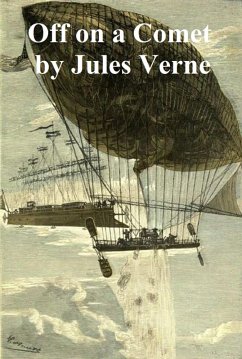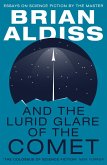One of the first science fiction novels. According to the introduction, "In one way "Off on a Comet" shows a marked contrast to Verne's earlier books. Not only does it invade a region more remote than even the "Trip to the Moon," but the author here abandons his usual scrupulously scientific attitude. In order that he may escort us through the depths of immeasurable space, show us what astronomy really knows of conditions there and upon the other planets, Verne asks us to accept a situation frankly impossible. The earth and a comet are brought twice into collision without mankind According to Wikipedia: "Jules Gabriel Verne (February 8, 1828 - March 24, 1905) was a French author who pioneered the science-fiction genre. He is best known for his novels Journey to the Center of the Earth (written in 1864), From the Earth to the Moon (1865), Twenty Thousand Leagues Under the Sea (1869-1870), and Around the World in Eighty Days (1873). Verne wrote about space, air, and underwater travel before navigable aircraft and practical submarines were invented, and before any means of space travel had been devised. Consequently he is often referred to as the "Father of science fiction", along with H. G. Wells. Verne is the second most translated author of all time, only behind Agatha Christie with 4162 translations, according to Index Translationum. Some of his work has been made into films. "in general, or even our astronomers, becoming conscious of the fact."
Dieser Download kann aus rechtlichen Gründen nur mit Rechnungsadresse in A, B, BG, CY, CZ, D, DK, EW, E, FIN, F, GR, H, IRL, I, LT, L, LR, M, NL, PL, P, R, S, SLO, SK ausgeliefert werden.









